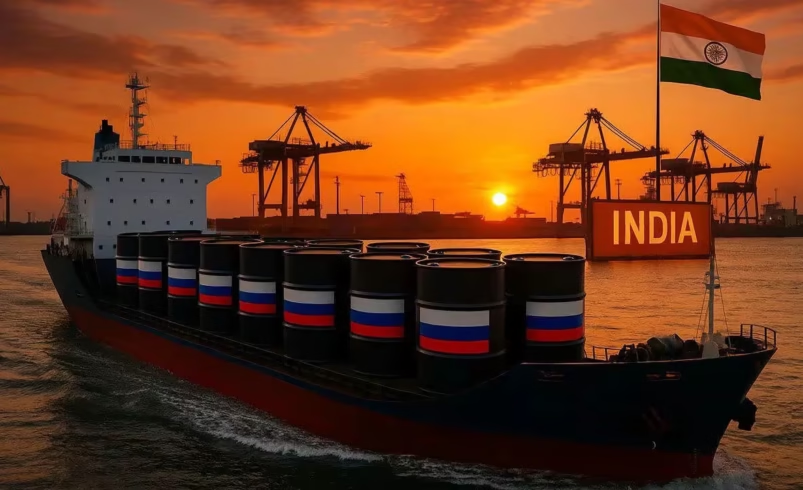India Resists U.S. Pressure, Increases Russian Oil Imports
- September 12, 2025
- 0

In a significant move, India has increased its imports of Russian crude oil, reaching levels close to those of China. This development comes amid ongoing pressure from the United States, which has urged India to cut back on these purchases. In August alone, India’s imports of Russian crude oil amounted to €2.9 billion, underscoring the country’s strategic energy decisions.
The U.S. has been vocal about its concerns regarding India’s energy trade with Russia, even going so far as to impose tariffs on Indian exports as a form of economic leverage. Despite these pressures, India remains steadfast in its approach, emphasizing the need to secure energy resources for its growing economy.
India’s decision to continue importing Russian crude oil is part of a broader strategy to diversify its energy sources. As one of the world’s largest energy consumers, India is keen on ensuring a stable supply of oil and gas to fuel its economic growth. The country’s reliance on Russian energy is not unique; other major economies, including China and the European Union, also continue to import significant quantities of Russian oil and gas.
The U.S. has expressed its disapproval through diplomatic channels and economic measures. The imposition of tariffs on Indian exports is seen as an attempt to coerce India into aligning with U.S. foreign policy objectives regarding Russia. However, India’s response has been firm, highlighting the importance of maintaining autonomy in its foreign policy decisions.
The global energy landscape is complex and interdependent. Countries like India must navigate geopolitical tensions while securing their energy needs. The ongoing situation highlights the challenges faced by nations in balancing international relations with domestic priorities.
India’s stance may have broader implications for international relations and global trade dynamics. By resisting U.S. pressure, India is asserting its position as an independent player on the world stage. This move could influence other countries facing similar pressures to reevaluate their own energy strategies and diplomatic relationships.